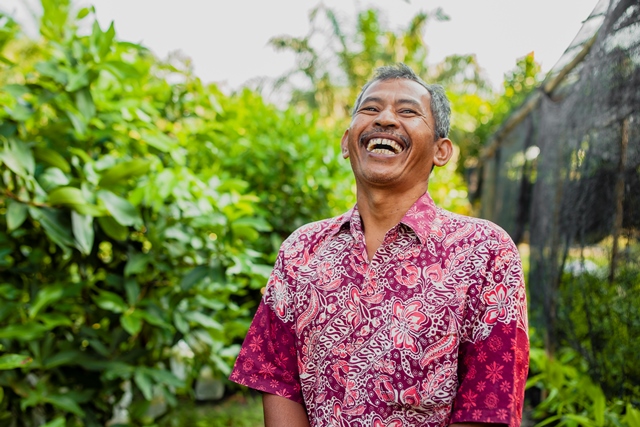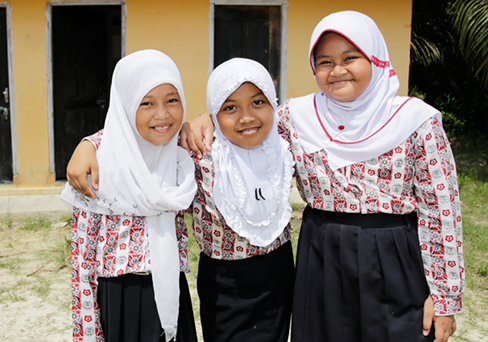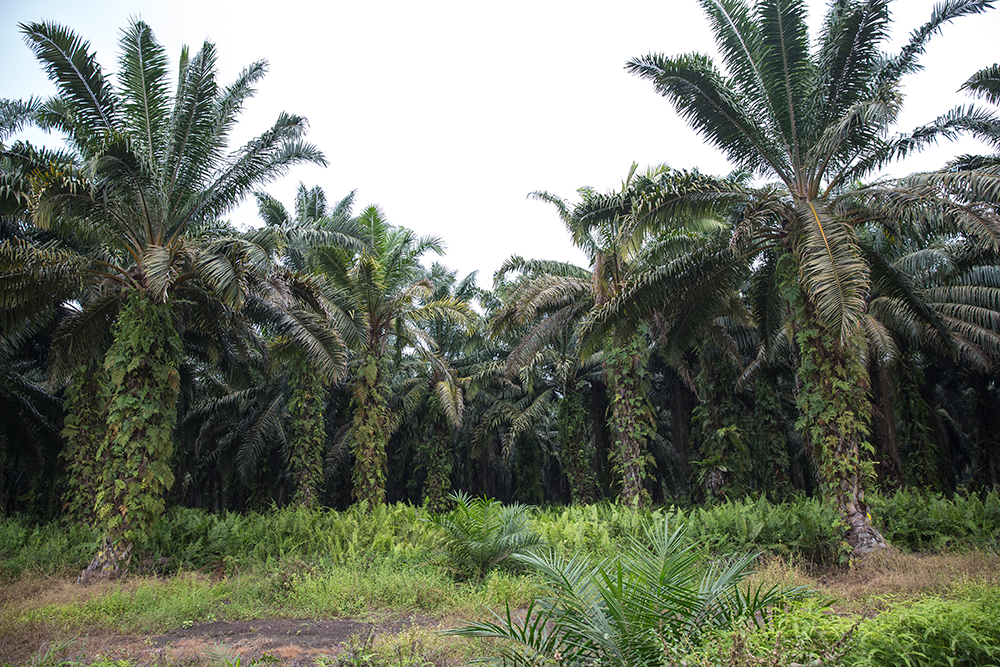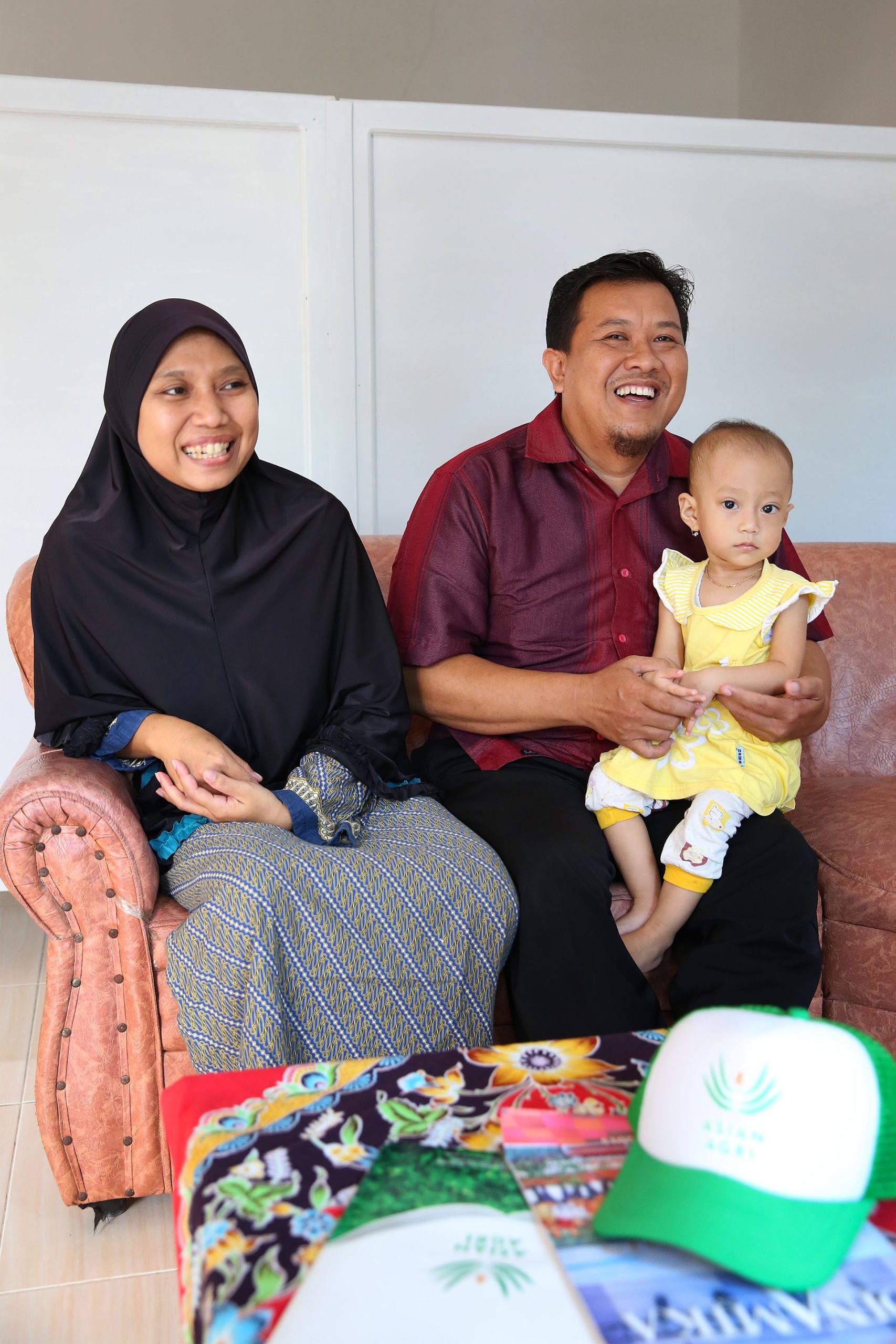
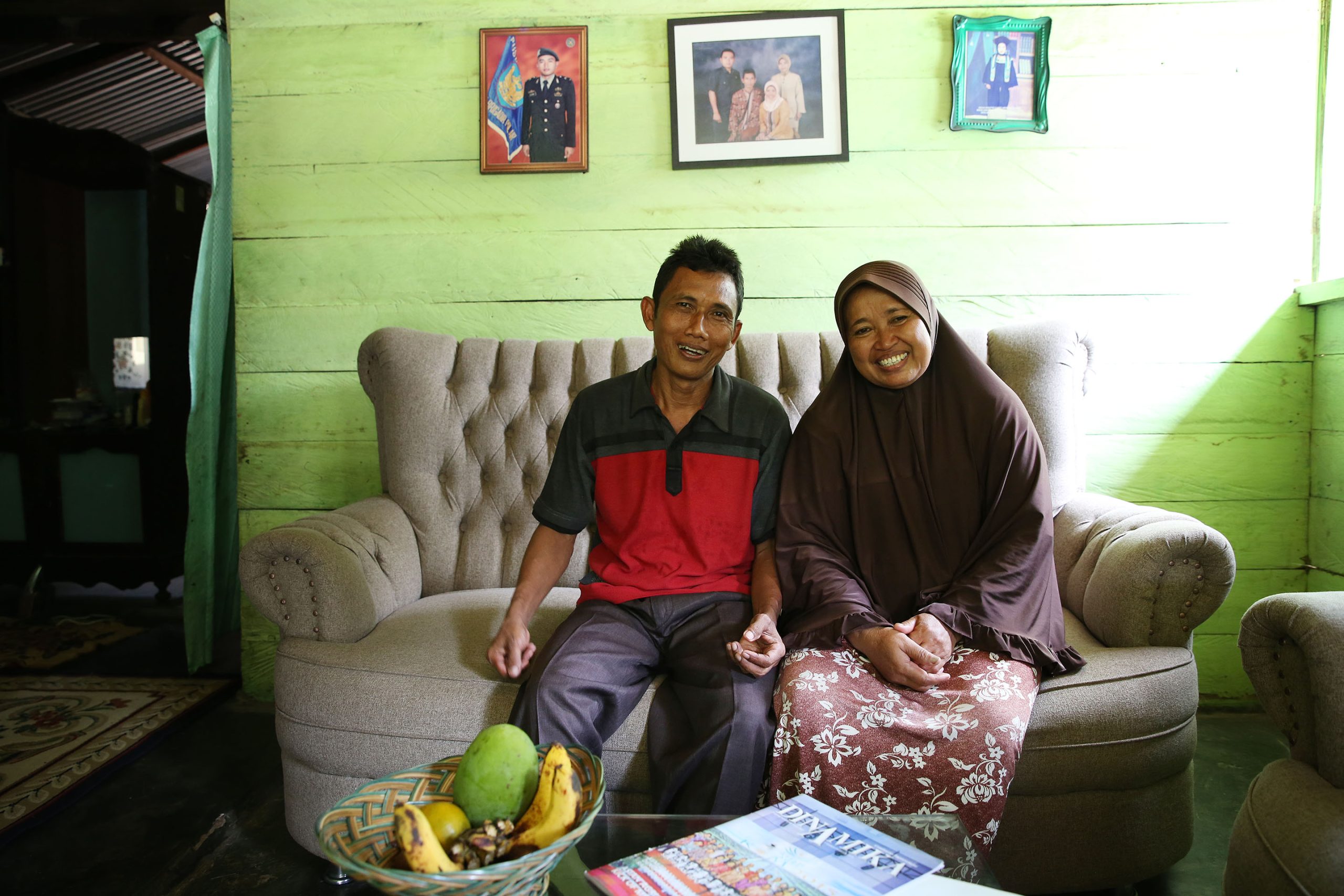
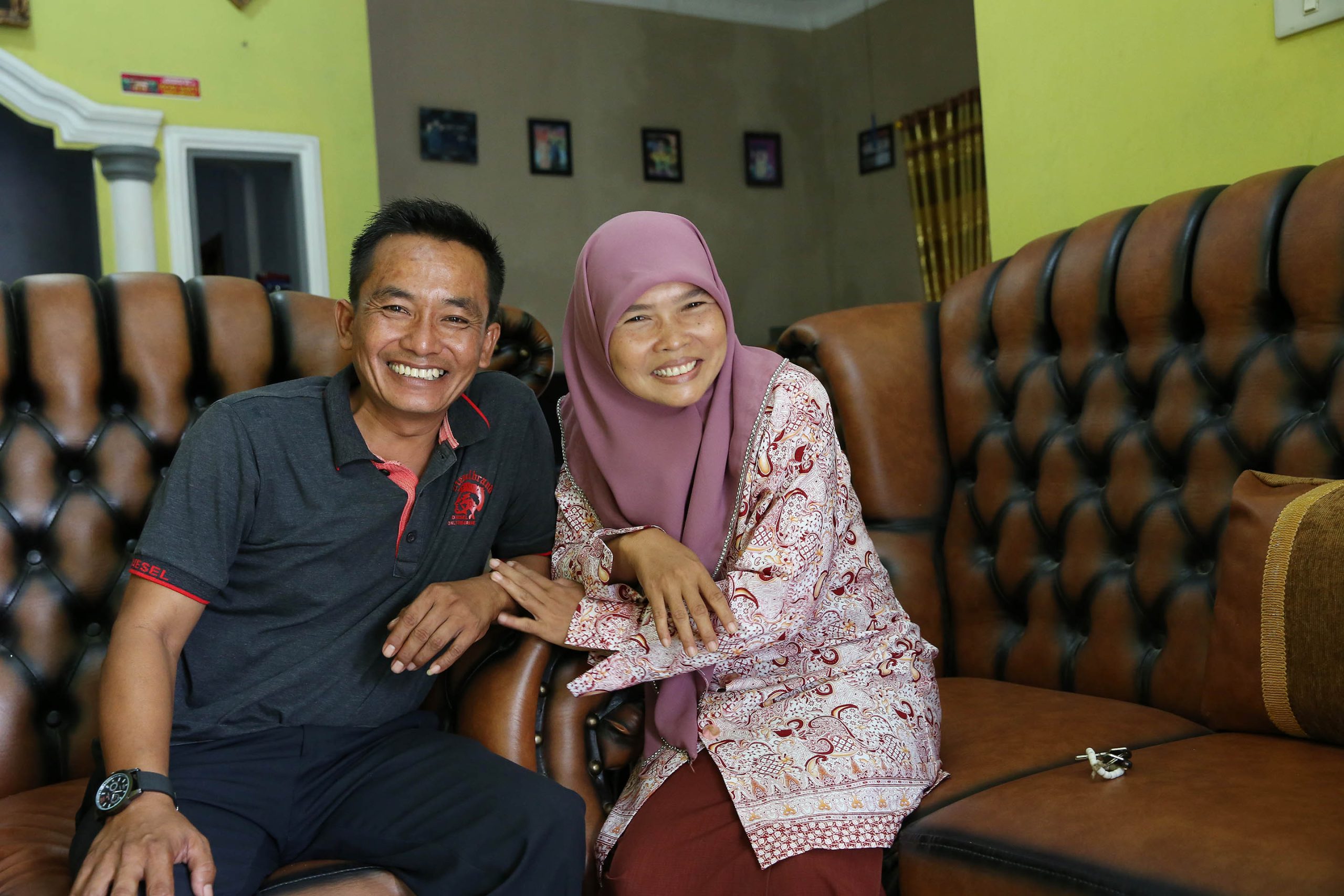
The highly productive oil palms seen today on Asian Agri’s plantations are the result of the hard work of tens of thousands of Indonesian farmers who in turn enjoy a fair return on the fruits of their labor.
A Source of Sustainable Livelihood for Smallholder Farmers
Before they partnered with PT Inti Indosawit Subur (Asian Agri) – many of the farmers had no permanent jobs in their villages. Through the government’s transmigration program – called PIR-Trans – people from across Indonesia came to the oil palm plantations of Asian Agri.
It was a decision that changed their lives for the better. “We came to Riau from Ponorogo in 1991 with empty hands,” said Samdi (60), a farmer with KT Rawa Mukti, a smallholder association.
“When we arrived at the plantation area, I was given a home and an area of two hectares. If I never joined the transmigration program, I would have not been able to send my children to university.”
Another farmer, Yatno, used to survive in Medan by carrying out casual labor. Today he earns 10 million rupiah per month as part of KT Sehati.
“In my hometown in Medan, I earned money by providing public transport. Sometimes, I also took tailored clothes orders. Life was very mediocre at that time. But when I decided to move to Asian Agri’s palm plantations in 2001, I found a lot of differences in my life. Slowly but sure, I managed to buy eight hectares of land, so I could support my wife and five children,” said Yatno.
With regard to the partnership between the farmers and the company, Yatno claim has never had a problem. “Asian Agri really helps and supports us. For example, if there is a problem of pests in our estate, I report to the company, and they will come to give a solution,” he explained.
Income is generated from planting and harvesting fresh fruit bunches (FFBs), which are purchased by Asian Agri at the price set by government. Then, FFBs are processed into palm oil which will be exported or used for domestic consumption. The oil palm harvest occurs every 10 days, and every month farmers receive a percentage of income from the accumulated number of successful oil palm bunches harvested.
Mimin, a smallholder who moved from Garut to Riau in 1991, explained that the arrangement is a happy one.
“By being a smallholder of Asian Agri under KT Sabar Barokah, I do not need to worry if my FFBs will be sold: the company will take them all. I can enjoy life, feel secure, and all the people here are pleased,” he said.
Sunarto, head of smallholder association KUD Bhirawa Bhakti, believes that the partnership scheme is the ideal model of cooperation. “Farmers and Asian Agri are cooperating, instead of working against each other. Both parties mutually benefit from each other, so that all farmers here – including me – can change our destiny,” he said.
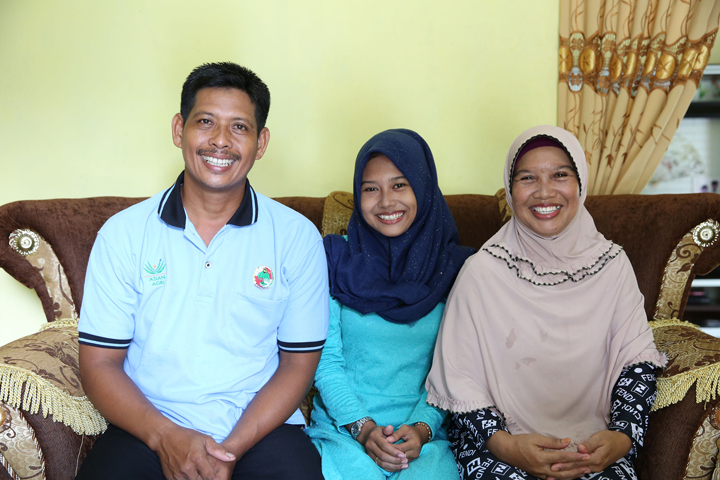
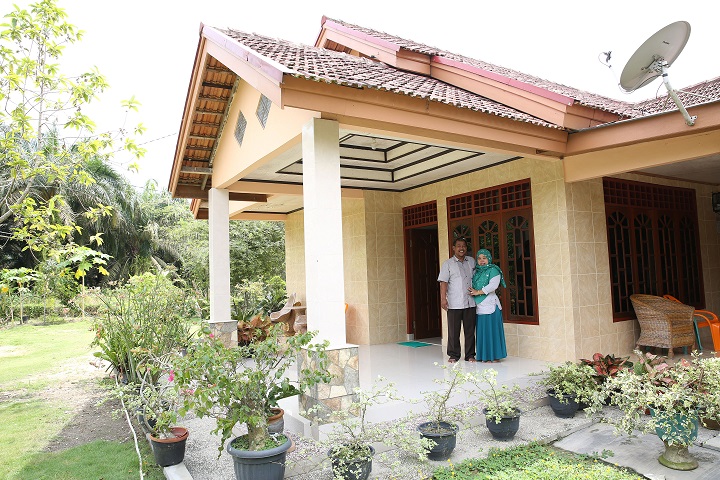
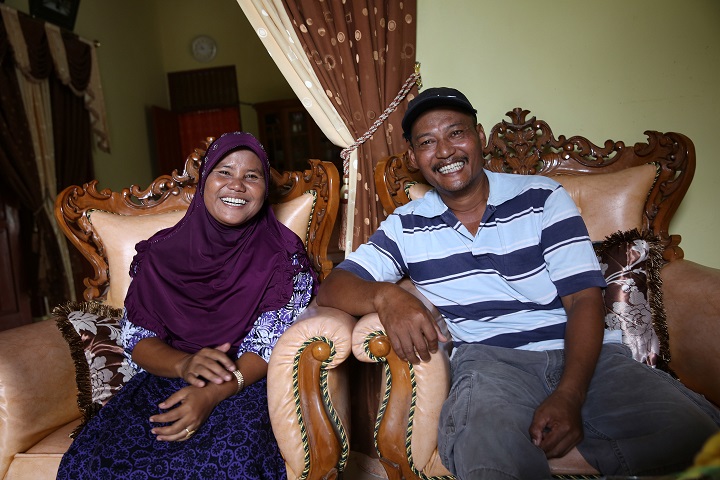
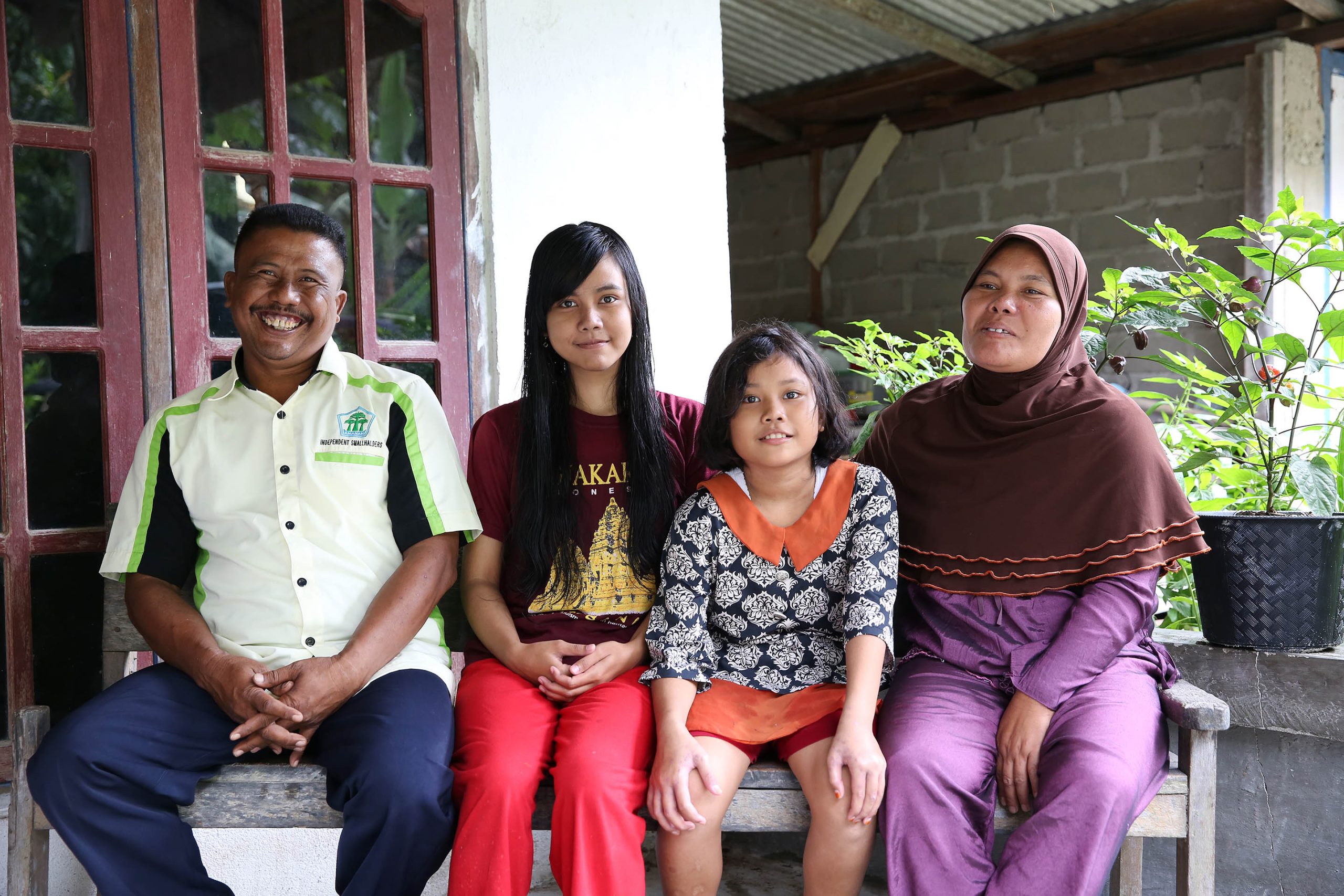
Raising the Living Standards of the Community
Beyond supporting smallholders’ income, Asian Agri also builds health and education facilities for the community. Asian Agri provides health clinics in every plantation to allow smallholders’ families to seek medical care.
Asian Agri also founded an elementary school with qualified teachers who have received extensive additional training.
In addition to maintaining partnership and improving the farmers’ welfare, Asian Agri also prioritizes the conservation of the natural resources of Indonesia, including but not limited to rivers, cemeteries, protected forests, and a special forest where original habitats of the honey bee are found.
The smallholder’s journey with Asian Agri will continue. Their experience and trust are the most important factors to succeed this partnership.


